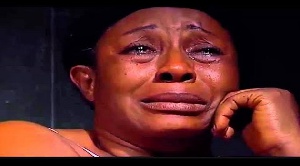 In many traditional communities, widowhood represents
In many traditional communities, widowhood represents
Women in Africa suffer emotional, mental and spiritual problems when their husbands die, making it near to impossible to enjoy the best of health due to the pressure to conform to widowhood practice.
There are also implicit sanctions placed on the widow by society, which make it difficult for women to express their viewpoints in widowhood, hence systematically denying them the right to enjoy the constitutional provisions for good life.
In most cases, becoming a widow is to fall into extreme poverty. The situation is aggravated by the widespread practice of property grabbing, which local authorities, despite efforts to curb it, are far from claiming victory over this gendered violence against women.
In most ethnicities, after the death of her spouse, the family of the deceased husband forcibly, and sometimes violently, takes all possessions from the widow, leaving her with the children with nothing to bank their hope on.
In many traditional communities, widowhood represents “social death” for women. It is not merely that they have lost their husbands, the main breadwinner and supporter of their children but widowhood also robs them of their status. They are suddenly consigned to the very margins of society where they suffer the most extreme forms of discrimination and stigma.
For instance, in a typical Malawian setting, unmarried women are under the control of their fathers while married women belong to their husbands. This means widows are in limbo and no longer have any protector.
The grief many widows experience is not just the sadness of bereavement but the realisation of the loss of their position in the family that, in many cases, results in their utter abandonment, destitution and dishonour.
What makes the situation pathetic and the future gloomy, however, is how conspicuously the interests of widows are under-represented in the commitments by governments, civil society and the international community.
Ratified treaties like the 1979 UN Convention on the Elimination of All Forms of Discrimination against Women barely mention widows, except in the context of ageing.
This is despite the observation that issues of widowhood cut across every one of the 12 critical areas of the 1995 Beijing Platform for Action, covering poverty, violence to women, the girl-child, health, education, employment, women and armed conflict, institutional mechanisms and human rights.
A possible explanation for the neglect of this category of systematically abused women is the assumption that widows are mainly elderly women who are cared for and respected by their extended families.
In fact, of course, far from caring for and protecting widows, male relatives are likely to be the perpetrators of the worst forms of widow abuse. If they are young widows, it is imagined that they will be quickly remarried.
But in spite of the soaring numbers of widows in Malawi, public policies that specifically target this vulnerable group are yet to be developed so that they can be offered protection, empowering them from poverty and giving them a chance at a dignified life.